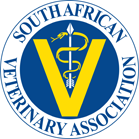Original Research
Serum neutralising antibody response of seronegative horses against lineage 1 and lineage 2 West Nile virus following vaccination with an inactivated lineage 1 West Nile virus vaccine
Journal of the South African Veterinary Association | Vol 84, No 1 | a1052 |
DOI: https://doi.org/10.4102/jsava.v84i1.1052
| © 2013 Michael C. Pearce, Marietjie Venter, Tjitske Schouwstra, Charmaine van Eeden, Petrus Jansen van Vuren, Janusz Paweska, Bo Liu, Arrie du Plessis
| This work is licensed under CC Attribution 4.0
Submitted: 09 May 2013 | Published: 21 November 2013
Submitted: 09 May 2013 | Published: 21 November 2013
About the author(s)
Michael C. Pearce, Veterinary Medicine Research and Development, Zoetis, BelgiumMarietjie Venter, Department of Medical Virology, University of Pretoria, South Africa and Centre for Respiratory Diseases and Meningitis, National Institute for Communicable Diseases of the National Health Laboratory Service, South Africa
Tjitske Schouwstra, Aran Veterinary Clinic, Rustenburg, South Africa
Charmaine van Eeden, Department of Medical Virology, University of Pretoria, South Africa
Petrus Jansen van Vuren, Centre for Emerging and Zoonotic Diseases, National Institute for Communicable Diseases of the National Health Laboratory Service, South Africa
Janusz Paweska, Centre for Emerging and Zoonotic Diseases, National Institute for Communicable Diseases of the National Health Laboratory Service, South Africa
Bo Liu, Biometrics, Zoetis, United States
Arrie du Plessis, Zoetis, South Africa
Abstract
Lineage 2 West Nile virus (WNV) strains are endemic in South Africa and cause severe neurological disease in horses. An inactivated lineage 1 vaccine, Duvaxyn WNV, protects mice against challenge with a neuroinvasive South African lineage 2 strain of WNV. To evaluate the potential of Duvaxyn WNV to protect horses against lineage 2 strains of WNV, serum neutralising antibody responses of horses against lineage 1 WNV strain NY385/99 and lineage 2 WNV strain SPU93/01, isolated from a human with meningo-encephalitis in South Africa, were compared following vaccination with two doses of Duvaxyn WNV, 28 days apart, and a third dose one year later. Twenty-two seronegative horses were randomly assigned to two treatment groups: 16 to a vaccinated group and six retained as unvaccinated controls. Blood samples were taken from all horses on study days 0, 28, 35, 42, 49, 91, 141, 182, 231, 274, 322, 364 and 413. Primovaccination with Duvaxyn WNV resulted in high titres of serum neutralising antibodies against both strains. Following a single dose of Duvaxyn WNV on day 399, one year after primovaccination, there was a strong anamnestic response with a log25-fold rise in the titres of neutralising antibodies against strains NY385/99 and SPU93/01. These results provide further evidence that Duvaxyn WNV is likely to protect horses against infection with lineage 2 strains of WNV and that a single annual booster may be sufficient to maintain immunity against lineage 2 WNV infection in horses.
Keywords
West Nile virus; vaccine; horse; Duvaxyn WNV
Metrics
Total abstract views: 4140Total article views: 8444
Crossref Citations
1. A Survey on West Nile and Usutu Viruses in Horses and Birds in Poland
Barbara Bażanów, Petrus Jansen van Vuren, Piotr Szymański, Dominika Stygar, Agnieszka Frącka, Jan Twardoń, Roland Kozdrowski, Janusz T. Pawęska
Viruses vol: 10 issue: 2 first page: 87 year: 2018
doi: 10.3390/v10020087
